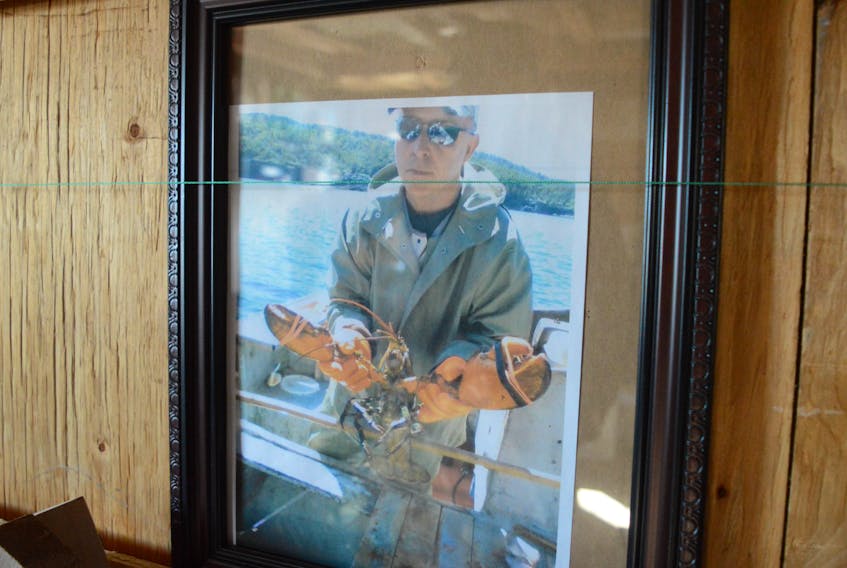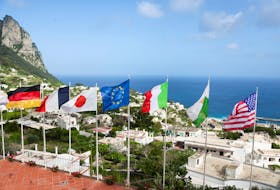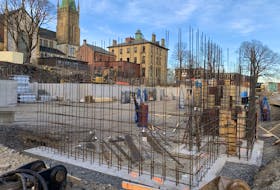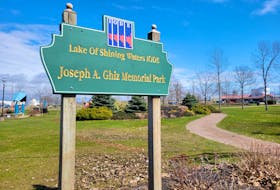SALVAGE, N.L. – Last September, Salvage fish harvester Gordon Janes hauled up his last pots and began the process of selling off his enterprise and retiring from the profession.
He’s leaving behind the industry at a time where signs of declining stocks, poor management and major uncertainty are almost everywhere.
Looking back on his extensive involvement in not only the fishery, but in harvester-lead conservation efforts, Janes’ has persistently believed that conservation should take a priority role in the lives of fishermen.
“Especially for young people getting into the fishery, conservation has got to be the first thing you’re thinking about,” Janes said. “I told the young fellow [John Penney] that bought my license to always look at this as a long-term investment. You’re not just fishing it all for yourself and leaving nothing behind for others, or for the future.”
Call for conservation
Since the mid-‘90s, Janes has played a key role in a long-standing protection effort along the Eastport Peninsula.
In the immediate aftermath of the cod moratorium, as dependency on other fisheries was beginning to take its prominence, a group of lobster fishermen formed a committee to establish a conservation strategy along Eastport waters.
“Before the moratorium, many of us hardly ever fished lobster. But afterwards, those lobster licenses became very active,” said Janes. “It was a few years later the committee itself decided protection measures needed to be brought in; something had to be done.”
With the destruction of the cod fishery fresh in their minds, the Eastport Peninsula Lobster Protection Committee formed in 1995 with efforts focused on self-policing and data collection. In 1997, the fishermen approached the Department of Fisheries and Oceans and two marine protected areas were established along Round Island near the community of Happy Adventure and the Duck Islands between Salvage and Burnside.
These off-limit areas were put in place to protect the species and encourage population growth. The committee’s efforts remain in place to this day, with Penney, the man taking over Janes’ enterprise, agreeing to keep up Janes’ conservation work.
Janes says while the effects of these two protected areas reverberate throughout Newfoundland waters, similar conservation efforts should be taken up across all of the province’s fishing communities.
“When lobster larvae drift it’s always with the current, and most of the things we’re doing here to increase lobster egg production may be benefitting lots of other communities,” Janes said. “That don’t bother us, but it would make more sense if every community was doing that — it would be paying off for everyone.”

Ensuring a future
Today, the work and perseverance of the Eastport Peninsula Lobster Protection Committee, gives a first-hand example that harvesters can have a stake in the sustainability of the species they fish.
To see the protection continue over two decades later, Janes is contented that the committee’s legacy still remains.
“I think it’s worthwhile. I’m glad that DFO is still interested and still putting money into the science part of these protected areas,” he said.
But Janes understands the reality that harvesters have a living to make. As well, the aging demographic among Newfoundland fishers hinders this conservation message.
“The problem is with most fisheries, especially small boat fisheries, your level of income is not the greatest even in the best of times,” he said. “For a lot of fishermen conservation is one of the last things on their mind, their biggest concerns is to make a bit of money and make their payments.
“Not that anyone is against conservation, but it’s not the number one thing — especially if they’ve got big boat payments to take care of.”
Janes feels the need for younger people to enter Newfoundland and Labrador’s inshore fishery is where the call for conservation can resonate.
“Most of the fishermen in this area are around 55 and up. Give the fishery another 10 or 15 years – that’ll take care of most of them,” said Janes. “Young people may be more conservation-minded, knowing that if they get into this business it’s long-term.”
But obstacles like the large financial investment, strict regulations and declining quotas make a career in the province’s inshore fishery a battle to enter. Janes says that major changes need to be made to encourage young people to get involved with the industry, as well as giving the cultural and economic significance of the fishery a greater part in the province’s public schools.
- Related
- Editorial: For cod's sakes
- Northern cod stock declined over last year; scientists urge minimum fishing effort
- FFAW, FISH-NL speak out after DFO cut to northern cod
What it will take
Since 2015 the talk of a rebounding cod fishery was the shining light of hope for the inshore fishery. But the recent DFO surveys showing a 30 per cent decline in cod stocks in 2017 and an additional decline projected this year has crushed the hopes of many.
In these current circumstances, Janes sees the most important lesson is that any serious conservation efforts of Newfoundland and Labrador oceans has to keep all species in mind.
“The most important thing right now is to proceed with caution,” said Janes. “If we had proceeded slowly with these other fisheries, the cod would have rebounded much more quickly. That’s part of the reason we’re in the fix we’re in.
“Instead we fished everything to the extreme like capelin, shrimp, crab – these species that cod depend on. It’s all so important and everything is connected.”
Janes sees the capelin fishery, which is also in a serious state of decline, as the most essential species to ensuring the conservation of others.
“To me capelin is always the one that it comes back to me. Everything depends on capelin,” he said. “Right now, we’re destroying a lot of the capelin before it actually gets the chance to mate and reproduce. The fishery remains open for political reasons I believe.
“But if we don’t get a handle on this capelin fishery, we won’t ever get a handle on cod – without capelin, there will be no cod fishery.”









